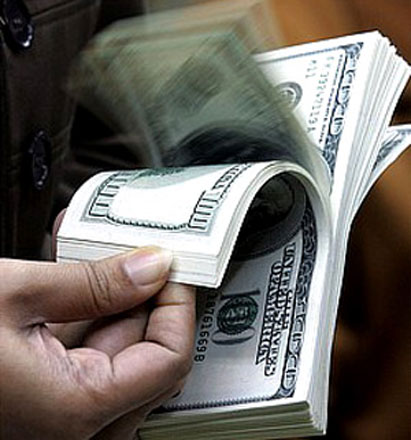Azerbaijan, Baku, July 14 /Trend, A.Badalova/
The position of the U.S. dollar in relevant to European currencies will continue to grow despite the current fears regarding the U.S. announcement of a default in connection with non-rise in the upper threshold of public debts of the country.
"With the end of quantitative easing and continued uncertainties over the ability of eurozone leaders to fix the eurozone crisis, the dollar should appreciate towards the euro," Fredrik Erixon, Director of the European Centre for International Political Economy (ECIPE), wrote in an e-mail to Trend.
The positions of the U.S. dollar weakened in relevant to most currencies for already the two days. The cause for the fall in the U.S. dollar was a speech this week by the Chairman of U.S. Federal Reserve Ben Bernanke before the House of Commons, in which he sounded a hint of a possible continuation of the QE program in response to the continuing slow growth of the economy.
Today a negative impact on the dollar was made by the statement of Moody's that sent the highest ranking to U.S. - Aaa - for a review with possible reductions in connection with fears of not rising in the upper limit of public debts of the country by August 2.
Earlier, U.S. Treasury Secretary Timothy Geithner said that already on August 2 the U.S. will announce a default due to the fact that the Republicans do not want to increase the ceiling of the national debt.
Erixon said the White House and the U.S. Congress will find a way out of the current impasse over the debt ceiling.
If the U.S. cannot find a compromise over the debt ceiling, there will be very sharp consequences for the US as the centre for world financial markets, Erixon said.
"The dollar will take a big dive, and capital will shift into other currencies, pushing them upwards," said Erixon.
Adam S. Hersh, Economist at the Center For American Progress believes that the Euro will decline against the dollar in the second half of the year.
The European focus on fiscal contraction is undermining economic growth and making debt problems even more difficult to manage.
"As a result, investor capital will flow out of European assets and higher quality U.S. dollar assets, including Treasuries which will maintain their position as safe haven investments," Hersh wrote in an e-mail to Trend.
Hersh believes the real risk of not raising the debt ceiling is a severe contraction in aggregate demand if the government needs to stop paying social security checks to senior citizens, paying soldiers and veterans, and all the other services and investments government provides, and (2) a spike in interest rates that will make put financial stress on middle class families and make it harder for small businesses to borrow for investment.
Such a demand shock would undercut an already weakening economic recovery, and put the U.S. back into recession, Hersh said.
"Conservatives in Congress need to come around to raising the debt ceiling and then should focus on short-term measures to boost employment while keeping an eye on raising revenues and finding spending efficiencies to manage the long-term budget challenges," Hersh concluded.






